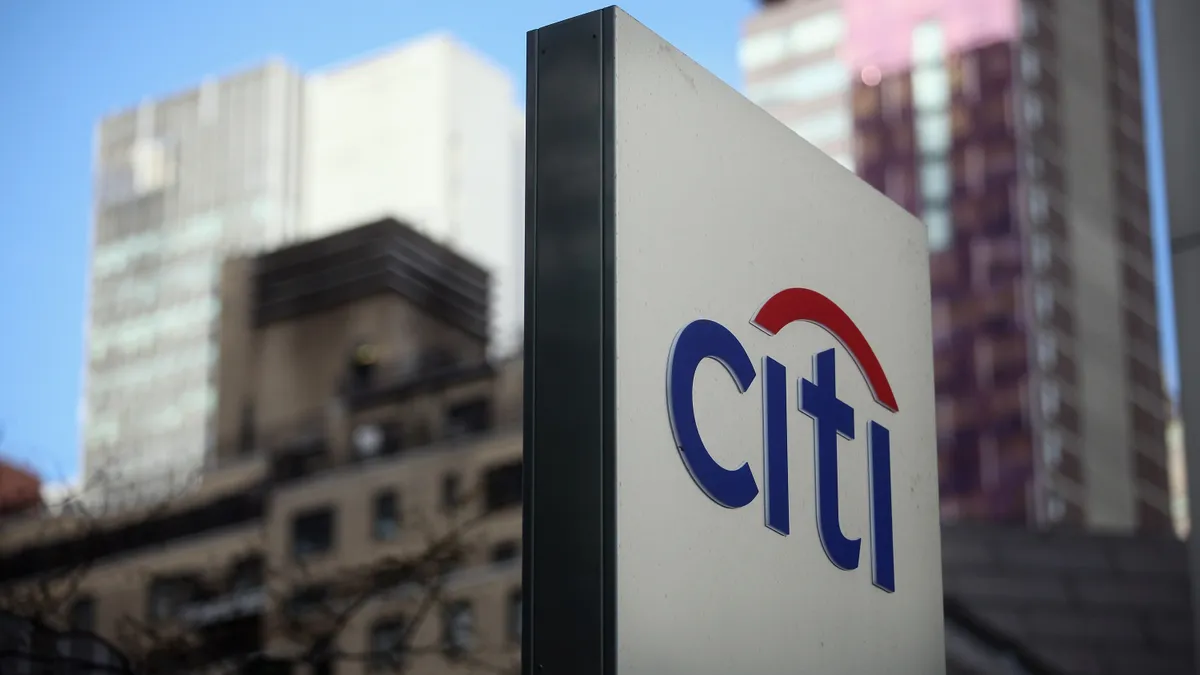JPMorgan Chase, Bank of America and Citi are all considering plans to slash by 30% the pools they use to pay bonuses to investment bankers, Bloomberg reported Friday, citing people familiar with the discussions.
The purported plans mark a sharp turnaround from the end of 2021, when Bank of America, for one, sought to boost its investment-banking bonus pool by more than 40%.
This year and last, of course, are far different by the numbers. Goldman Sachs generated more revenue over the first nine months of 2021 than it generally pulls in 12. This year, investment-banking revenue at the five largest U.S. banks combined dropped $18.8 billion between January and September — a 47% dip, according to Bloomberg.
Johnson Associates, a compensation consulting firm, last month predicted investment-banking bonuses would drop 15% to 20% for those focused on advising, and 40% to 45% for underwriters.
That, too, is an about-face from last year, when the company expected a 30% to 35% uptick in bonuses for underwriters, in what was set, overall, to be the largest single-year compensation bump since 2009.
One bright spot in Johnson’s prediction this year is that bankers in fixed-income sales and trading could see their bonuses jump 15% to 20%. That’s an area where Wall Street has excelled in 2022. Rates and commodities traders have helped push fixed-income trading revenue industrywide to its second-best year ever, Bloomberg reported.
For their efforts, Bank of America and Citi may keep bonus pools for traders near last year’s levels, according to the wire service.
Traders at Goldman, however, may not escape the downturn despite generating revenue that is predicted to top $25 billion this year and surpass last year’s total by 15%. This may stem partly from a plan announced in October to combine the bank’s investment-banking and trading divisions.
Goldman is considering reducing the bonus pool for traders by a low double-digit percentage, according to Bloomberg. Read: at least 10%.
"We always tell people their bonus is based on how they did, how their group did, and finally how the company did," a person with knowledge of Goldman's processes told CNBC. "This year, some of the good money traders made will have to go fund the other parts of the bonus pool."
Goldman telegraphed in July that it would reinstate annual performance reviews, which in the past, had factored into efforts to cut the lowest performers. The bank in September appeared to begin a cull that ultimately could encompass hundreds of jobs.
And bonuses, or the lack thereof, may be used as a sign that some bankers are seen as dispensable. A zero bonus may be a message that their jobs are at risk, and they should start searching before the cull comes for them.
Citi, Bank of America and Barclays are said to be considering giving dozens of their lowest performers no bonus. At Goldman, that number could climb past 100, Bloomberg reported.
Spokespeople for JPMorgan, Bank of America, Citi, Goldman and Morgan Stanley all declined to comment to Bloomberg, the Financial Times and Reuters.
Another investment bank, Jefferies, was more transparent with its expectation surrounding annual bonuses.
“This is going to be a more difficult compensation season at Jefferies, just like it will be for every firm in our industry,” CEO Rich Handler and President Brian Friedman told employees in a memo Thursday seen by Bloomberg.
The executives remained optimistic for 2023 “because of how we dealt with a very challenging 2022,” they said, calling the past 12 months “incredibly volatile, frustrating, confusing and somewhat exhausting.”
“We will work through the compensation process fairly, expeditiously and as transparently as possible,” Handler and Friedman wrote.















